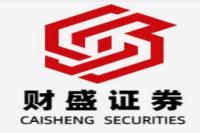Navigating the Digital Trade Landscape: WTO's Role in Shaping a Fair and Equitable Future
Meta Description: This article delves into the World Trade Organization's (WTO) crucial role in shaping the future of digital trade, exploring the challenges and opportunities of navigating a globalized digital economy. Discover how the WTO's efforts to establish clear and transparent rules for cross-border data flow, e-commerce, and consumer protection are creating a more equitable playing field for businesses worldwide.
Introduction
In an era defined by rapid digitalization, the lines between physical and virtual borders are blurring, and the need for a robust and equitable framework for international trade has never been more crucial. The World Trade Organization (WTO), the global body responsible for regulating international commerce, is at the heart of this transformation. As the world grapples with the complexities of navigating a globalized digital economy, the WTO is taking proactive steps to establish clear and transparent rules for cross-border data flow, e-commerce, and consumer protection, ultimately creating a more level playing field for businesses of all sizes.
The Power of Digital Trade: A Catalyst for Growth
The digital economy is a powerful engine for growth, offering unprecedented opportunities for businesses to reach new markets, connect with customers, and expand their operations. However, this growth comes with challenges. The rapid evolution of technology, the rise of e-commerce platforms, and the increasing reliance on digital data have created a complex and dynamic landscape.
Navigating the Digital Trade Landscape: The WTO's Role
The WTO recognizes the importance of a fair and equitable digital trade environment. It is committed to addressing key challenges facing businesses operating in the digital realm, including:
- Cross-border Data Flow: The free flow of data is vital to innovation, growth, and competitiveness in the digital economy. However, concerns around privacy, security, and sovereignty have led to a patchwork of national regulations that can create barriers to cross-border data transfers. The WTO is actively working to address these concerns by promoting international cooperation and harmonization of data protection rules.
- E-commerce: The rise of e-commerce has revolutionized how businesses operate and consumers shop. However, disparities in national regulations, including customs procedures, consumer protection, and intellectual property rights, can create challenges for cross-border e-commerce. The WTO is working to address these challenges by promoting a level playing field for e-commerce businesses and consumers.
- Consumer Protection: As consumers increasingly rely on online platforms for goods and services, it is essential to ensure their protection from unfair practices and scams. The WTO is working to strengthen consumer protection in the digital economy by promoting robust consumer protection laws and regulations, including those related to online payment security and data privacy.
The Importance of a Rules-Based System
The WTO's efforts to establish clear and transparent rules for digital trade are crucial for ensuring a level playing field for businesses worldwide. These rules will help to:
- Promote Transparency: By establishing clear rules, the WTO aims to create a more transparent and predictable environment for businesses operating in the digital economy. This transparency helps to reduce uncertainty and foster trust among businesses, governments, and consumers.
- Reduce Barriers to Trade: By addressing barriers to cross-border data flow, e-commerce, and consumer protection, the WTO aims to create a more open and inclusive digital trade environment. This will allow businesses to access new markets, expand their operations, and compete on a more equitable basis.
- Boost Economic Growth: By facilitating digital trade, the WTO aims to promote economic growth and development. This growth will benefit businesses, consumers, and governments alike.
Digital Trade: A Key Driver of Development
The WTO's efforts to shape the digital trade landscape are particularly important for developing countries. These countries have significant potential to benefit from the digital economy, but they often face challenges in accessing technology, attracting investment, and participating in global value chains. The WTO's rules-based system can help to overcome these challenges by creating a more equitable and inclusive digital trade environment.
The Future of Digital Trade
The digital economy is constantly evolving, and the WTO is committed to staying ahead of the curve. The WTO is working to address emerging challenges such as:
- Artificial intelligence (AI): The rise of AI is transforming businesses and economies worldwide. The WTO is exploring how to regulate AI in a way that promotes innovation, protects consumer rights, and ensures fair competition.
- Cybersecurity: The increasing reliance on digital technologies has raised concerns about cybersecurity. The WTO is working to strengthen cybersecurity measures to protect businesses and consumers from cyberattacks.
- Digital platforms: The rise of large digital platforms has raised questions about market competition, data privacy, and consumer protection. The WTO is working to ensure that these platforms operate in a way that is fair and transparent.
Keywords: Digital Trade, WTO, Cross-border Data Flow, E-commerce, Consumer Protection, Globalized Digital Economy
FAQs
Q: What are the key challenges facing digital trade today?
A: Key challenges facing digital trade include:
- Cross-border data flow restrictions: Many countries have regulations that restrict the flow of data across borders, creating barriers for businesses.
- E-commerce barriers: Disparities in national regulations, including customs procedures, consumer protection, and intellectual property rights, can hinder cross-border e-commerce.
- Consumer protection concerns: As consumers rely more on online platforms, ensuring their protection from unfair practices and scams is vital.
Q: How is the WTO working to address these challenges?
A: The WTO is working to address these challenges by:
- Promoting international cooperation and harmonization of data protection rules.
- Developing a comprehensive framework for e-commerce that addresses key issues, such as customs procedures, consumer protection, and intellectual property rights.
- Strengthening consumer protection in the digital economy by promoting robust consumer protection laws and regulations.
Q: What are the benefits of a rules-based system for digital trade?
A: A rules-based system for digital trade can provide numerous benefits, including:
- Increased transparency: Clear rules create a more predictable and transparent environment for businesses.
- Reduced barriers to trade: Removing barriers to cross-border data flow, e-commerce, and consumer protection can facilitate trade and boost economic growth.
- A more level playing field: Rules can help to ensure that businesses compete on a more equitable basis.
Q: How can the WTO help developing countries benefit from digital trade?
A: The WTO can help developing countries benefit from digital trade by:
- Providing technical assistance: The WTO can help developing countries develop their digital infrastructure, capacity, and regulatory frameworks.
- Promoting trade partnerships: The WTO can facilitate trade partnerships between developing countries and developed countries, enabling knowledge sharing and technology transfer.
- Advocating for fair and equitable rules: The WTO can advocate for rules that are fair to developing countries and that help them to participate in the digital economy.
Q: What are some emerging challenges in digital trade?
A: Emerging challenges in digital trade include:
- The regulation of artificial intelligence (AI): The WTO is exploring how to regulate AI in a way that promotes innovation, protects consumer rights, and ensures fair competition.
- Cybersecurity: The increasing reliance on digital technologies has raised concerns about cybersecurity. The WTO is working to strengthen cybersecurity measures to protect businesses and consumers from cyberattacks.
- Digital platforms: The rise of large digital platforms has raised questions about market competition, data privacy, and consumer protection. The WTO is working to ensure that these platforms operate in a way that is fair and transparent.
Conclusion
The WTO's efforts to shape the digital trade landscape are crucial for ensuring a fair and equitable future for all. By establishing clear and transparent rules for cross-border data flow, e-commerce, and consumer protection, the WTO is creating a more level playing field for businesses worldwide. This will ultimately lead to increased economic growth, innovation, and opportunity for all. As the digital economy continues to evolve, the WTO's role will become even more important in ensuring that the benefits of this transformation are shared by all.



